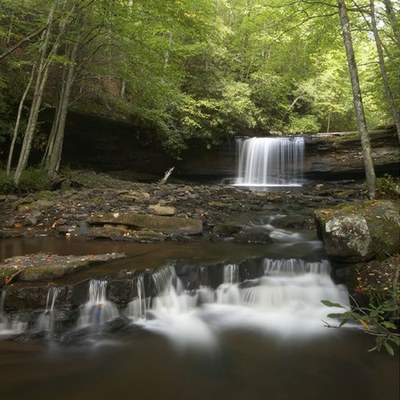Environmental Flows from Water Withdrawals in the Marcellus Shale Region
 The Appalachian LCC provided a grant to Cornell University Environmental Engineers to study how the region’s surface freshwater supply – and the health of natural systems delivering this resource – have been impacted and may be altered in the coming years under increasing water withdrawals.
The Appalachian LCC provided a grant to Cornell University Environmental Engineers to study how the region’s surface freshwater supply – and the health of natural systems delivering this resource – have been impacted and may be altered in the coming years under increasing water withdrawals.
The research focuses on the Marcellus Shale region in the Central Appalachians, including portions of New York, Pennsylvania, Ohio, Maryland, West Virginia, and Virginia. In addition to considering the cumulative impacts of water withdrawals, the researchers looked at specific impacts of large water withdrawals with hydraulic fracturing in the Marcellus Shale region as one example.
The study attempts to answer these key questions:
- What are the observed impacts on freshwater fish communities and ecosystems associated with current levels of water withdrawals?
- What might those impacts look like under a range of potential water withdrawal scenarios?
- Is it possible, using sophisticated computer modeling techniques, to identify different flow regimes that deliver a more balanced approach for regulating water withdrawals to meet human demands and sustain healthy ecosystems?
The overall goal of this research is to provide new information to help resource managers, industry and others make more informed decisions in achieving sustainable river and stream flows that balance the needs of society and healthy ecosystems. Information could also be beneficial for early project design and planning as well as setting a foundation for discussions about associated biological and ecological effects.
View a video presentation by Dr. Todd Walter, Professor of Biological and Environmental Engineering at Cornell University, and Brian Buchanan, Post-doctoral Researcher at Cornell University, which provides a brief overview of this study's background, findings, and major products.
Scientific Research Papers Associated with this Collaborative Research
- Environmental flows in the context of unconventional natural gas development in the Marcellus Shale. Brian P. Buchanan, Daniel A. Auerbach, Ryan A. McManamay, Jason M. Taylor, Alexander S. Flecker, Josephine A. Archibald, Daniel R. Fuka, and M. Todd Walter. 2016 Ecological Applications, 27(1), 2017, pp. 37–55.






















